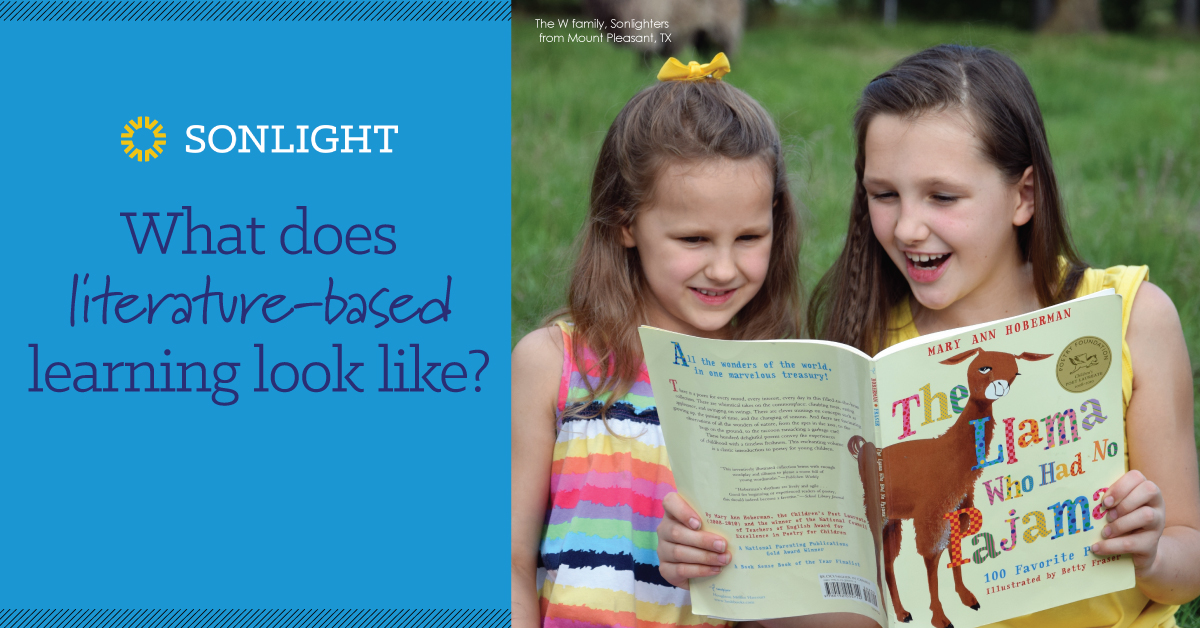
Is reading good for more than academic development?
Absolutely.
You may already know that reading good books (like those in Sonlight curriculum) helps your children develop good character, grow in leadership skills, develop empathy, and even talk with you about tricky topics like racism.
Reading Literary Fiction Builds Emotional Intelligence
Well, you can add to that list now. Research shows that reading literary fiction boosts people's abilities to read other people's emotions. It's a new angle on the idea that reading fiction helps people grow in empathy.
Participants were assigned a short excerpt of literary fiction, popular fiction, or non-fiction to read. Some received nothing to read. Then they took a test of emotional intelligence skills, such as guessing people's emotions based on pictures of their eyes. Those who read the literary fiction performed markedly better than the other groups.
Literary Fiction Makes the Reader an Active Participant
One explanation for this is that literary fiction requires more active participation from the reader. One of the researchers says:
"Some writing is what you call 'writerly', you fill in the gaps and participate, and some is 'readerly', and you're entertained. We tend to see 'readerly' more in genre fiction like adventure, romance and thrillers, where the author dictates your experience as a reader. Literary [writerly] fiction lets you go into a new environment and you have to find your own way."
In other words, when you read pop fiction (such as the latest Danielle Steel novel), "the writer is in control, and the reader has a more passive role." It reminds me of television. The author/producer spells things out so you know what people are thinking and feeling. You just sit back and enjoy the entertainment.
But in literary fiction–such as most Sonlight books, or what you'd read in a college English class–the writer tends to show, not tell. The author doesn't spell out every motivation, thought and feeling. Instead, the writer draws you into the story as a participant. Without even realizing it, you fill in gaps and imagine what characters must be feeling. You get outside yourself and walk in another's shoes.
Sonlight is a Literature-Based Curriculum
According to this study, these emotional intelligence skills seem to transfer to real life.
Through Sonlight's literature-based curriculum, your children read real literature. I believe this builds their emotional intelligence every day.
While it's fine for kids to read the occasional work of children's pop-fiction (what Charlotte Mason would call twaddle), I believe we should primarily feed them a solid diet of real, living books. I certainly aim to fill each Sonlight program with such worthy literature.
In discussing this study, one Sonlight mom wrote:
"This article is one of the main reasons I want a heavy literature education. I consider teaching my children humanities to be very important. I want them to really learn about other people from various perspectives, circumstances and times in history."
I agree! So just add this to your list of benefits of using Sonlight and reading real books. You can actually foster emotional intelligence through literature! The practice helps your kids read other people and become more emotionally aware. Not a bad payoff for enjoying great books!
Want more encouragement?
Sign up for Sonlight's bi-weekly e-newsletter
You'll be encouraged by the words of founder Sarita Holzmann, inspired by real-life stories from other homeschoolers, pick up practical tips for the journey and more.










Pingback: Five Reasons to Waste Your Time Reading to Your Kids | Sonlight Blog
Pingback: A new study says that frequent reading boosts academic performance | Sonlight Blog